By Lisa P.
The phrase “come out come out wherever you are” is the taunting phrase shouted by the seeker in the children’s game of Hide and Seek. Do you remember playing that game? Only the foolish (or novice) person who doesn’t believe they have a good hiding place would ever respond by jumping up and saying, “here I am!” Isn’t it interesting how close a child’s game is to our reality?
We must decide if we are ever going to come out to someone else as a crossdresser or as transgender. If we feel nice and safe in our hiding place, there is no need for us to come out. Yet, there are many times when we want to jump up and shout “here I am!”. For example, we may want to come out to make a statement or because we are tired of living in the dark” and as my father would say “shed some light on the subject.” Making a statement worked for me when I came out to my two boys (about a year after coming out to my daughter, who was the first of my children to learn about me when she “surprised” me one day by walking into the house unannounced, as I have previously related). I came out to my sons after state politicians introduced a bathroom bill (the first in a series of anti-trans legislative actions). I wanted all of my children to stand up in opposition to the legislation and to know why it was important for them to do so. The other times I have come out generally have been because of being weary of the hiding.
Regardless of the underlying motivation, coming out is an incredibly personal decision and often very emotional. The reasons vary, but a common theme is a strong desire to be accepted and validated for who we are. We say not only “here I am” but also “see me!”
An obvious problem with coming out is that it typically comes with significant risks. Like Amanda [see her five-part “Matrimonial Challenges” essays starting here], we may come out to our spouse and have them give us a “cease and desist” ultimatum (one step better than they never want to see us again). We may come out to a friend and then have the friend immediately reject us or (worse) slowly recede from friendship. Coming out always risks rejection – the opposite of acceptance – and vilification – the opposite of validation. So, as much as we might want to come out in hopes of gaining an ally, we just as likely may encounter unanticipated hostility. That type of response is yet another complication of living wholly or partly in the closet. Coming out of the closet every once in a while enables us to enjoy the daylight, and like a moth attracted to the flame, many of us can’t help ourselves and come out repeatedly.
Two recent examples from my life highlight the risks and the rewards of coming out. Within the past 8 months I have come out to two important people (among others) in my life: one of my pastors and my only sister. I had different reasons for coming out to each. My pastor I wanted to come out to because this pastor also has a good relationship with my wife; I thought that if this pastor became an ally, my wife would have someone to talk to. My dear wife seems to be so worried about what others will think that she jealously guards the ‘secret’ that I am trans (to be fair, she also believes that it is my secret to share, not hers). By keeping it secret, she denies herself a confidante (for the record, I have offered couples therapy, but so far she has not been open to the prospect). My hope therefore was that the pastor could act as that missing knowledgeable and trusted friend. I wanted to come out to my sister for an entirely different reason. None of my family members (except my wife and children and one in-law) are aware that I identify as transgender. The lack of family support feels like a hole in my life. I wanted to have an ally in the broader family, and since my sister had long complained about being the only girl in the family (after the death of my mother), I thought she would appreciate knowing that I am (at least by intention) a member of her team. Also, because we have always been emotionally close, it seemed likely that she would be an ally who could provide me with additional emotional support and perhaps would be willing to spend time getting to know Lisa better.
Long story short, I hit the ball out of the park with the pastor, but “whiffed” with my sister.
I came out to my pastor over lunch. The immediate response was “what is your name,” followed by “when can I meet Lisa?” We arranged a dinner a few days later (with Lisa attending as herself) and spent a couple of hours in deep (and personally meaningful) conversation. It was exactly what I needed at that moment. Afterwards, my wife received an email with an offer to listen and to be responsive if my wife needed someone to talk to. I couldn’t have asked for anything more than to have an ally like that! It feels good knowing that there is someone out there who knows and appreciates the whole me and may be able to help my wife cope with this part of me.
My sister was another story. She definitely loves me and that meant that she was sympathetic when I came out to her (with many unexpected tears on my part). She saw how hard it was for me to “confess” this part of myself to her. But, notice my use of the term “confess.” I believe my sister saw it as something to hide, like my wife. In the six months since I came out to her, she has not once followed up to ask how I am doing. She never asked what name I use and she certainly never offered to meet Lisa. The result is that the jury is still out. I need to give her a lot more time to come to terms with this news (after all, it took me a lifetime to do it). I understand. At the same time, I have to admit that I haven’t gotten what I had hoped for from her – that is, wholesale acceptance and support. So far, my sister has reacted more like wife than my pastor.
The moral of this story is not that you shouldn’t come out. Never coming out means never having an ally, and allies are absolutely wonderful (and perhaps even essential). Never coming out also means doing nothing to change attitudes about the transgender community. My advice would be to be super careful about coming out to someone who is closely related to you. The closer the relationship, the greater the “jolt” created by the news. And, since you can never take it back, your relationship to the person you come out to is forever changed by that jolt – sometimes for the better, sometimes for the worse. You may not be able to tell beforehand which will be which.
Wouldn’t’ it be nice if “Olly, Olly oxen free” (or as we would say it when I was a child, “Olly, olly in come free”) applied to transgender persons to signal that we could come out of hiding free from condemnation, ridicule and shame? A nice dream to be sure, but in reality we will continue to be in the middle of an adult game of Hide and Seek unless and until (and maybe even after) we transition to our desired gender or otherwise come out to the entire world.


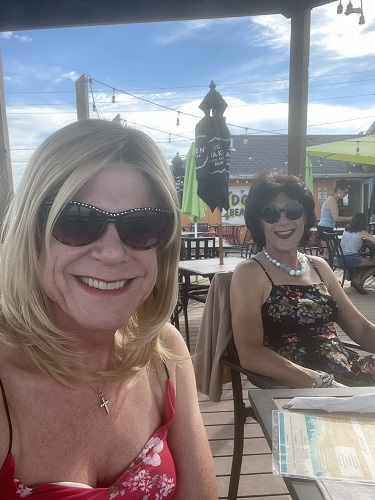

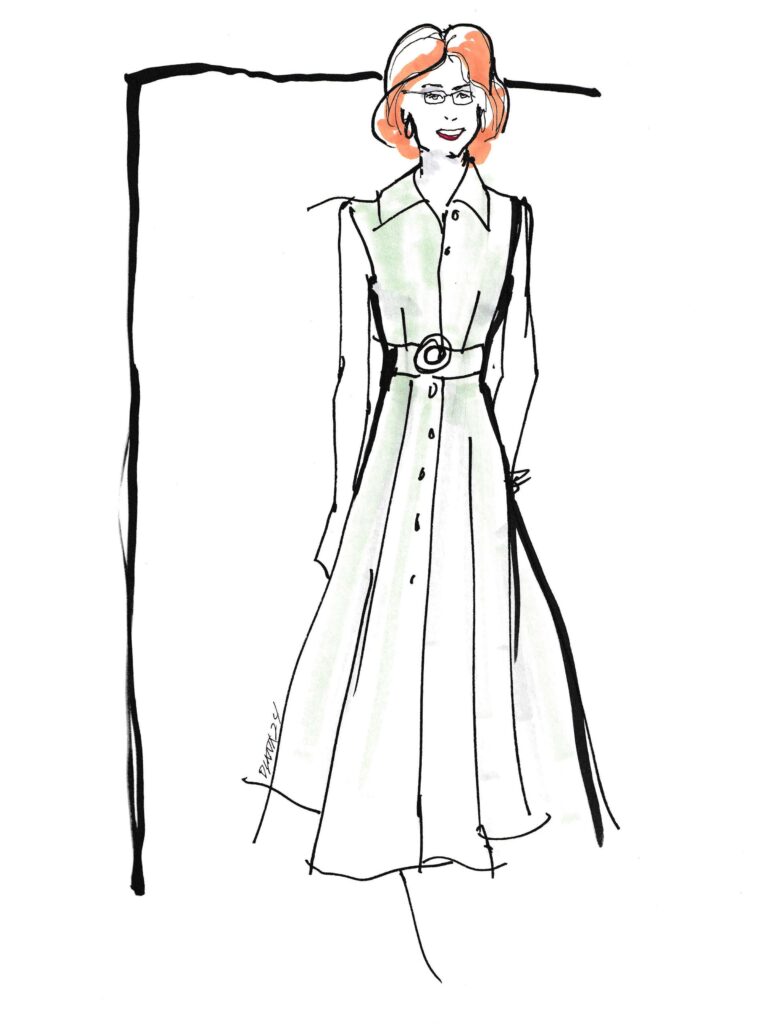


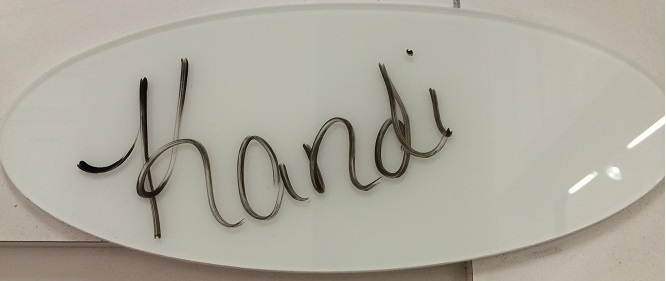

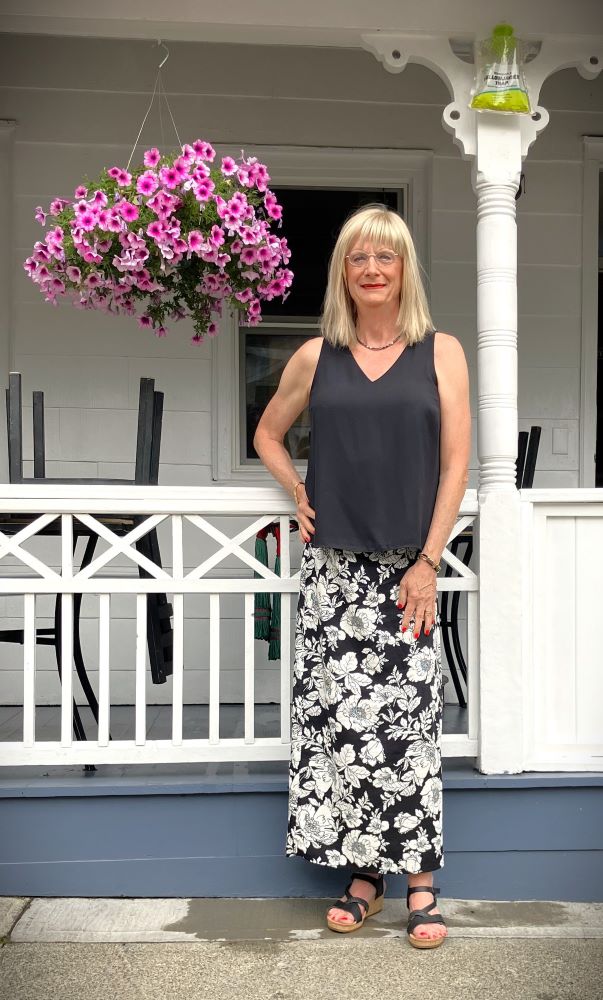

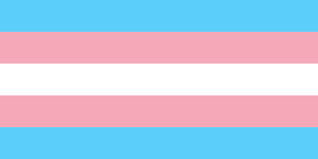
12 Responses
Lisa,
What a wonderful post. Not only are you coming out to some very important people in your life, but you are telling the whole world (via Kandi’s Land) about it.
Thank you so much for sharing your life with us.
You are a very wise and special person.
Jocelyn
Jocelyn,
You are sweet to comment and be affirming. There is often a huge tension within us — holding back when we fear or expect rejection, but wanting to jump in all the way if we think we will be accepted. I guess we were never promised a rose garden! But, ain’t the smell of the roses sweet when we find ourselves in one?
Lisa
Lisa I’m happy that for the most part your coming out has been somewhat successful.
I know in my case not so much. My ex wife was only ok with it behind closed doors. Then the more I felt the need to be involved in our community the worse is was for her. She did finally agree to give me a chance to get out into the world in a safe place, Las Vegas on Halloween weekend
Well for me it was great but not so much for her.
She saw how happy I was to be me.
So long story short it went down from there.
I had accepted who I was but nobody in my family ever could. So to them I’m still brother or dad
I truly wish in many ways I had not come out of hiding and stayed where I was.
My life now would be better, so yes I get the need to open up and be out but always be sure you know what your about to get into
Rachael
Rachael,
I will continue to keep your personal story in mind, as I think about when and how I come out. Sharing our pain is just as important as sharing our triumphs, if we want to stay real. I know I touched some nerves when I asked Dee about Michelle outing her. I do hope most of our family and friends can keep our secret, so that we don’t get surprised and it doesn’t have a negative affect (as it would most certainly for me in my business life). I know I will breathe easier once I am retired, and I only need to take my wife’s feelings into account. It may not be fair, but it is the reality for many of us. Thank you again for sharing what happened to you.
Lisa
Lisa,
Just to be clear, I believe you asked a fair question. My years of doing things have taught me that if someone asks a question, that others often have the same question.
Personally, I have told one person from my male life, and to respect privacy issues, let’s just say I had my reasons. That individual thanked me for trusting them. A few months later I had a situation that justified my disclosure. I am 1000% convinced it was the right decision.
I can’t foresee telling anyone else at this point, because I don’t see the benefit. But for all of us who face this decision, it is definitely NOT an easy decision to make.
Dee,
You are so right. I have told one male person in my work life. I still believe it was the right thing too. He has maintained my confidence and I am sure that he has my back, which really helps, because I also am certain my work life would not survive without serious issues if I came out to everyone at work. Since I haven’t transitioned, I believe there is no need to add those problems to the list of difficulties we already have.
Thank you for following up. You are lucky to have Michelle in your life and to be married to someone who recognizes the importance of that relationship.
Lisa
Lisa, that was a great & thought provoking read as always.
My understanding of what ‘coming out’ actually means have changed a lot since the fateful day that my confession provided the inspiration for the Matrimonial Challenges series of posts. The primary motivator was the fact that I thought I’d been discovered and didn’t want to live my life constantly waiting for the whole thing to blow up but even in the months before that, I’d been thinking about it as a way of seeking approval to relieve my conscience about doing it behind my wife’s back. Back then, ‘Amanda’ didn’t even exist as a person; it was just all about the clothes and getting permission to wear what I wanted, when I wanted.
Nowadays, though, things are very different. I have emotionally accepted ‘Amanda’ as part of who I am and the desire to reveal this side of my identity to others is getting stronger. This has been very much fuelled by my experience at my makeover last year when I was able to sit and talk to Cindy, the BWBG proprietor, about this side of my life without fear of judgement, disapproval or ridicule. Of course, it would be fun to show others a photo of my feminine alter ego and see their reaction, not least as she is the complete antithesis of the person they recognise but that’s not a factor in why I would do this. The truth is that keeping it all bottled up is debilitating and ultimately destructive.
The reactions from your pastor and sister were interesting. Sadly, despite the teachings of ‘God is love’, too many in the religious community (including many of the leaders) seem to add the postscript ‘unless you’re a crossdresser’ to that mantra. Your pastor’s reaction and follow up was amazing and should stand as a beacon to all of those who cite their religious beliefs to spread disapproval and, in some cases, hate.
Your sister’s reaction was perhaps even more interesting. A few years ago, we had a TV series over here which featured transitioners (going in both directions) and the family members of one (FtM) were interviewed. What was apparent from what they said was that while they completely respected his decision to transition, there was a huge period of adjustment for them which, to all intents and purposes, was being overlooked even to the point where, for example, ‘dead naming’ was seen as a deliberate act to undermine rather than a reflection of the adage that ‘old habits die hard’. Whilst the circumstances were obviously very different, I was certainly guilty of that when I confessed to being a CDer to my wife – I was confidently expecting something along the lines of ‘OK, that’s fine, thanks for telling me’ which, of course, is not what happened because I’d just blown every preconception she had about me out of the water. Have you talked more to your sister about it since that day or have you decided to let her deal with it in her own time?
Once again, a fantastic post and thanks for sharing your thoughts with us.
Amanda,
Thank you for your comments. I could write a whole ‘nother essay in response! To keep it short I will say first that my sister and I haven’t spoken about it since, although we have spoken often. I am treading lightly, for obvious reasons. The other comment I will make is that far too often the religious community is vilified for its bigots, when in fact bigots can be found in all human institutions. Just stop and listen to political leaders. People like to justify their bigotry (to themselves and others), so they wrap it up nicely in patriotism, faith, family — whatever works for them. All you have to do is read the New Testament to see that Jesus was not a bigot and anyone who truly wants to follow in Jesus’ footsteps (whether as a believer or as a personal philosophy) would fight internal bigotry like hell!
Thank you for always being thoughtful and insightful.
Lisa
Lisa,
Regarding your sister, whilst you didn’t get the reaction you were hoping for, there are still a few positives. Firstly, you’re still speaking to each other and secondly, she doesn’t seem to have reacted negatively, just not reacted at all. I know that spouses and siblings are very different but what causes me the most anguish these days is not my wife’s reaction but the fact that we don’t talk about it. The adjustments that a sibling has to make are very different to the ones a spouse has to make but, in many respects, they’re deeper rooted because siblings have known each other for a lot longer than spouses have. Also, because of the nature of your disclosure, there’s an implied need for discretion so, if she does have anxieties over it, she may well have bottled them up out of respect for you. You’re waiting for her to raise it but is she also waiting for you to raise it?
Now, I’m the last person to give advice on this as (a) I have no siblings and (b) when I confessed all, it didn’t go particularly well! But I learned two things in the process – firstly that in any disclosure situation, understanding the other person’s position is key and secondly don’t stop talking until there’s mutual understanding.
Good luck!
Amanda,
You are indeed a wise woman and I will take any advice you have to offer. I probably will need to raise it again with her. At first my wife refused to talk, but these days we have a set time, at dinner every other Wednesday. One of us brings it up to take each other’s temperature. It seems to work for now, but it took years to get to this point.
Lisa
I agree with Dee when she says she doesn’t see the benefit of telling people about her. Something that Helene Barclay has also said.
It is NOT an easy decision, and in my case I believe it would only lead to great upset and loss. I am prepared to live in my self imposed secret.
Jocelyn
Jocelyn,
You are so right. As I said, if we feel safe where we are, there is no reason to come out. Personally, I am glad that I came out to everyone I have come out to. My business associate can protect me, if I ever need help. He happens to be gay, so he knows the risks.
Lisa